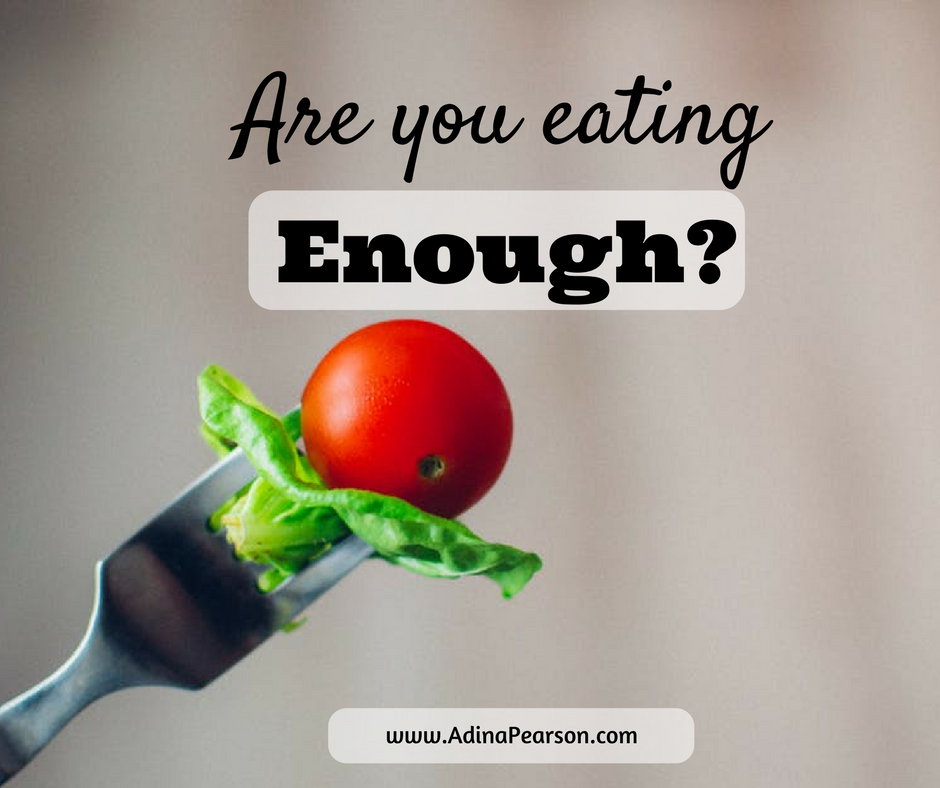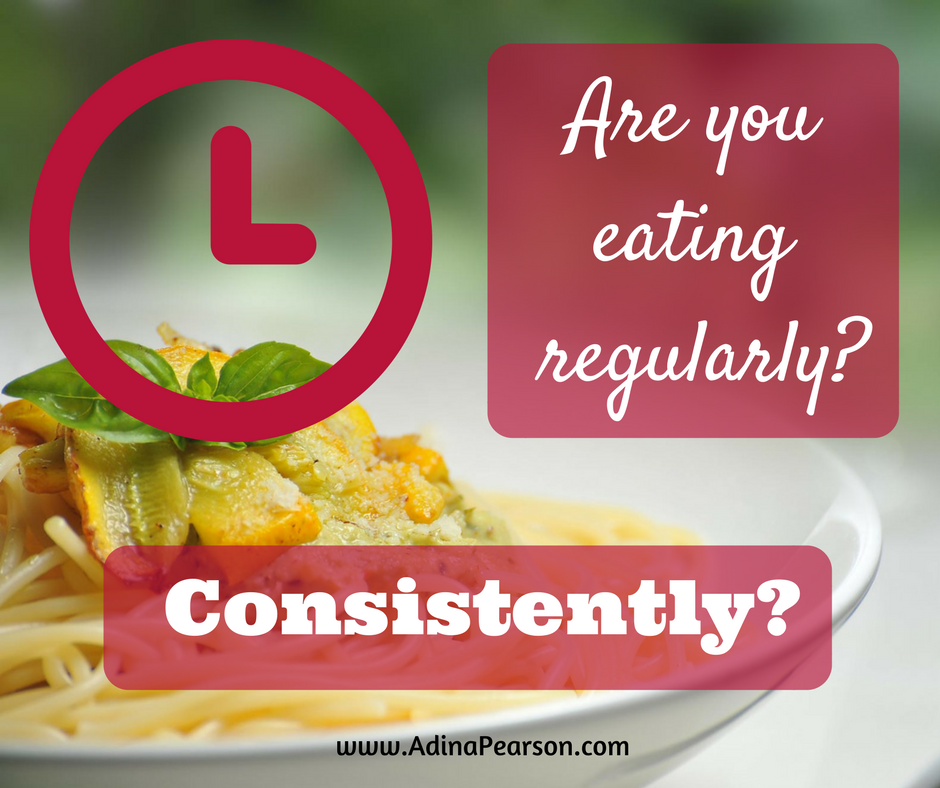Gut health requires normal eating patterns
This was originally published on my child feeding site, HealthyLittleEaters.com, but since I’ve started a separate website for Feeding Yourself topics, I’ve added it here too.
Constipation. Bloating. Gas. Diarrhea.
No doubt we’ve all experienced each of these from time to time. As dietitian, Kylie, so plainly stated in a recent blog post, being bloated is a side effect of being human. And so are the occasional gurgles, pains, or discomforts that come from having a gastrointestinal (GI) tract. Because digestion can also be influenced by life–our thinking, emotions, and eating patterns–it’s important to give yourself an eating patterns check-up before you blame problems on specific foods. Both anxiety and a dysfunctional relationship with food can contribute to GI symptoms and may need to be addressed first.
In our culture, it’s very easy to swing between dietary extremes or to start believing that certain ingredients or portions are universally right (or wrong) and that eliminating this or that will be key to fixing all symptoms. Even following “innocent” advice to chew gum or drink extra water to keep you from eating when you are genuinely hungry is a red flag that you might be dipping your toes into harmfully rigid habits. Habits that create symptoms that mimic food intolerances. Habits that affect your ability to listen to your body’s needs and respond accordingly. Habits that take you farther away from a healthy relationship with food and overall wellness.
So what kind of eating habits check-up do you need before considering food changes to feel better?
First and foremost you need to make sure you’re eating enough. Second, make sure you’re eating regularly and consistently. Even if you have diagnosed food sensitivities or intolerances (not allergies), don’t be too quick to eliminate ingredients until you’ve established a healthy pattern of eating enough consistently to rule out false positives.
#1 Eat Enough

Many people expend so much effort on controlling or reducing their intake that they’ve lost the ability to be realistic about getting enough. Enough is critical. Less than enough hurts your health and sense of well-being. Worrying about overdoing it, however, will get in the way. It will keep you from the freedom to reach enough. You must give yourself full permission to be satisfied first.
Are you satisfied at meals or do you leave the table hankering for something more? Eating enough is not just about a physically full belly. I can (begrudgingly) eat 4 cups of produce or a large meal replacement shake that tastes OK and fill my stomach to capacity, without feeling satisfaction. But eating enough means feeling satisfied. When is the last time you left the table feeling like your gut, mouth, and heart were full and happy? It’s hard to achieve this kind of happy-fullness if you’re eating foods you should eat while avoiding foods you actually want to eat. Eating enough requires you to ditch arbitrary food rules and take some risks as you learn to eat more intuitively.
Eating enough also involves mindfulness and carving out time: being present in the moment and eating in a relaxed fashion. We all have those days where we need to rush or get several things done at once and it’s an achievement to squeeze food in. But if most days turn eating into an after-thought or one of several tasks juggled simultaneously — this takes a toll on your body, your mind, and your digestion. It’s tough to eat enough if your mind is on paperwork, on driving or otherwise engaged elsewhere.
Of course I’m not suggesting you spend your lunch in a silent room meditating on a sandwich for 45 minutes. But I am recommending you slow down, take a breath, and give yourself space and time to experience the act of eating. The meal doesn’t have to be complicated, gourmet, or from scratch. But aim to hit the spot rather than to hold back and “be good.” You already are good.
#2 Eat Regularly and Consistently
Take #1 and plan to be reliable about it. Plan to eat breakfast, plan to eat lunch, plan to eat dinner and plan for an expected snack if you find you usually need one. As opposed to flying by the seat of your pants, waiting till you remember, till you’re hangry, till you get a break or are finished with XYZ…maybe…eventually.
Self-care is getting very popular lately. And that’s a good thing. But the foundation of good self-care is pretty basic stuff–sleeping enough and eating enough–on a regular basis. It’s not indulgent to get adequate sleep and food. It’s a necessity.

Chaotic eating will give you false positives
If you run on empty from morning till dinner and then have a big meal, it makes sense that you might feel discomfort, bloating or indigestion. If you consistently undereat it makes sense you might experience constipation and a myriad of other physical results of being undernourished. It’s hard to really dig out a food cause if your eating is chaotic, unreliable, or inadequate because one of the consequences of a screwy eating pattern is gastrointestinal distress. If you’re struggling in this area this is a great reason to meet with a dietitian and develop some positive eating skills.
If you’ve got #1 and #2 taken care of and you’re getting treatment for any anxiety or depression (get evaluated if you suspect it), and you still think you’ve got an underlying gastrointestinal issue or food intolerance, then work with your doctor and a dietitian. Your doctor can help identify any medical issue and a dietitian can help you navigate any necessary dietary changes so they are manageable and realistic for your life.
Life’s too short to spend unsatisfied and juggling unnecessary food restrictions.
If you’re ready to get started with better self care with food and more joyful and realistic path to good nutrition, schedule a 15 minute FREE discovery call with me: Click here
